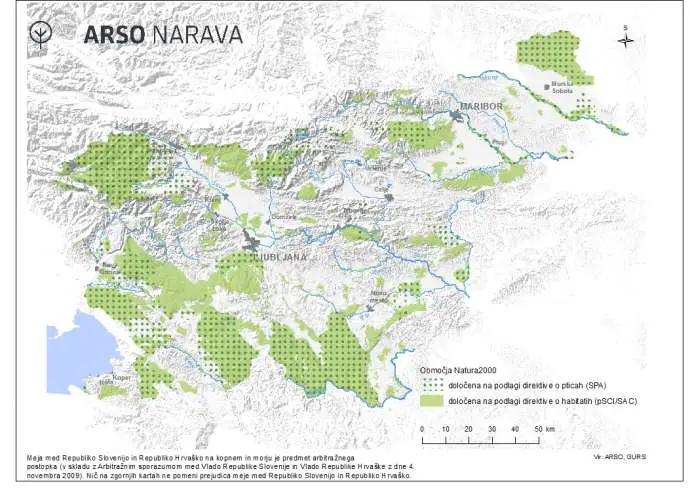STA, 16 October 2020 - Putting 38% of Slovenian territory under Natura 2000 protection was "a shot in the knee", Prime Minister Janez Janša told the press after an EU summit that had climate goals as one of the items on the agenda. He indicated Slovenia would only support goals that are feasible.
The EU summit on Thursday called for a strengthening of climate ambitions in the next decade in order to achieve the goal of climate neutrality by 2050. There is no specific agreement yet on the goal to reduce emissions, the desire is to reach one in December.
It was agreed this time that the enhanced goal must be reached together in the most cost-effective way. All member states will participate, whereby national circumstances, fairness and solidarity will be considered.
Eleven member states that have pushed for more ambitious targets issued a special statement calling for an agreement on the goal to reduce emissions by at least 55% by 2030.
Asked whether Slovenia intended to join the eleven, having once considered itself as a climate-ambitious country, Janša said that "politics can change every day, but we will not change natural conditions, in particular when we shot ourselves in the knee in the past."
He said one such shot in the knee was declaring 38% of Slovenia's territory a Natura 200 area, where it is forbidden to produce energy from natural and sustainable sources. The European average is 18%.
"We'll try to be ecologically conscious and yet not be complete idiots like those who drew these maps at that time not realising what it is actually all about," he said.
"We will not deal with the signing of various statements in which you commit to high targets, but at the same time ... expect that others will achieve them," he said, noting that Slovenia would support goals that will actually be implemented and would not pay triple the price like some neighbouring countries might.
Speaking about the summit debate, Janša said that nobody had major qualms about the 55% target, but there were concerns about how to achieve it, the price, and a fair approach.
"These targets need to be achieved so that they are actually sustainable, it should not just be about achieving some formally determined targets notwithstanding the price and consequences."
This means that "it does not make sense to generously subsidise electric cars and abolish diesel [cars] but then burn coal in thermal power plants to charge electric cars. There are rational boundaries here that simply must be respected."
Janša also highlighted the issue of global competitiveness. If Europe, which produces just over a tenth of global emissions, sticks to the rules and limits its own industry to its detriment, its competitiveness will decline, which will leave less money for research and innovation, the only path to achieving long-term climate goals.
He said it was clear the targets cannot be achieved without nuclear energy, which is a problem for some countries. Slovenia will definitely not have a new generator at its nuclear power plant until 2030, which means a lot will have to be done to approach the target.
All our stories on the environment and Slovenia







